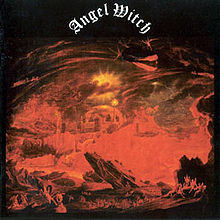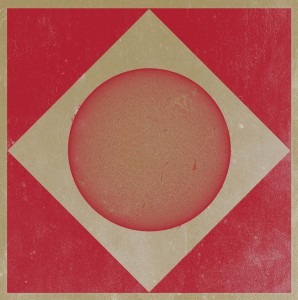
Ege Özgün (PHYS/PhD)
ozgun@fen.bilkent.edu.tr
This week I am going to talk about two albums from completely different genres: the 35-year-old eponymous album by Angel Witch, and a breathtaking collaboration between Ulver and Sunn o))) (pronounced, simply, “sun”) from last year.
Angel Witch – Angel Witch
Angel Witch is among the pioneers of NWOBHM. Their self-titled debut carries all the energy of early-80s NWOBHM albums. It is a multidimensional work, rather than just a to-the-point heavy metal production. It has a dark, Venom-reminiscent atmosphere. Kevin Heyborune is the driving force behind Angel Witch, serving as the main composer, lead singer and guitarist.
I would say that he was among the guitarists who gave direction to ’80s NWOBHM riffing.
 Coming back to the album, AW is a fast-paced, dark, highly melodic and solid release. Just like Satan’s debut, “Court in the Act,” AW is a proto-speed/thrash metal album. This is not solely because of the fast pace of the two albums; in fact, in terms of inspiring the forthcoming speed/thrash giants, their main feature in common is the attitude presented in the performing of the riffs.
Coming back to the album, AW is a fast-paced, dark, highly melodic and solid release. Just like Satan’s debut, “Court in the Act,” AW is a proto-speed/thrash metal album. This is not solely because of the fast pace of the two albums; in fact, in terms of inspiring the forthcoming speed/thrash giants, their main feature in common is the attitude presented in the performing of the riffs.
AW’s sound and mix are as good, for instance, as those of Iron Maiden’s self-titled debut, which is quite a big thing, since the latter was a genre-bending classic of its era. There isn’t much to say about the drums, which are consistent and have some interesting sections here and there; most importantly, they contribute to the overall atmosphere created by Heybourne’s creative songwriting. Heybourne’s vocals are another strength of this record: although he doesn’t have a wide register, he offers some high-pitched singing from time to time, and his voice, which is both dark and emotional, meshes perfectly with the guitar riffs he wrote. The bass sound is also a strong point on AW. You can hear the bass all the time; it is very creative and in some instances leads the songs.
Song suggestions: Confused, Atlantis, Angel Witch, Angel of Death
Ulver&Sunn o))) – Terrestrials
 Next is the stunning result of the collaboration between Ulver and Sunn o))) that took place in 2014. Let me talk briefly about both bands.
Next is the stunning result of the collaboration between Ulver and Sunn o))) that took place in 2014. Let me talk briefly about both bands.
Sunn o))) is a drone/doom metal band. They use extremely low-pitched sounds, noises and electronics, mixed in weird ways and resulting in albums reminiscent of Lou Reed’s highly controversial “Metal Machine Music.” In some instances, a single note or chord plucked on their guitars can persist for as long as a few minutes without any change, a pretty standard feature of drone music. And the low-pitched sounds they use give doom metal its dark atmosphere.
I have talked about Ulver at various points during the last year and a half in this column. To sum up their work, their debut was a black metal gem with folk influences; their legendary sophomore effort “Kveldssanger” was an acoustic folk album; their third album was a raw black metal piece of art; and after that they completely left not only black metal but also metal, and started composing experimental electronic-based ambient avant-garde works.
As you might guess, the blended work of these two extremely interesting and talented bands is a masterpiece. I am not going to go into depth about this three-song album because, to be honest, it would be really hard. In a nutshell, it has two sections; the drone ambient section and then the part where Kristoffer Rygg, aka Garm, adds his magical voice. This latter part is very short and comes at the very end of the album. There isn’t much to say about the masterfully crafted ambient sections. They are deeply hypnotic. You should just listen and decide for yourselves. When the part where Garm starts to sing reaches your ears, you will once more experience the true creativity and artistic quality of his singing and his voice. The most significant feature of his singing is, in my humble opinion, his articulation. I can compare it to that of one of the masters: Ian Anderson. I have a feeling that Garm may have been greatly influenced by him (well, who wasn’t?).
The first album I discussed above is easier to listen to, comprehend and like, whereas the latter needs time—but after a certain amount of time, it shows its true beauty. Stay connected to music.
